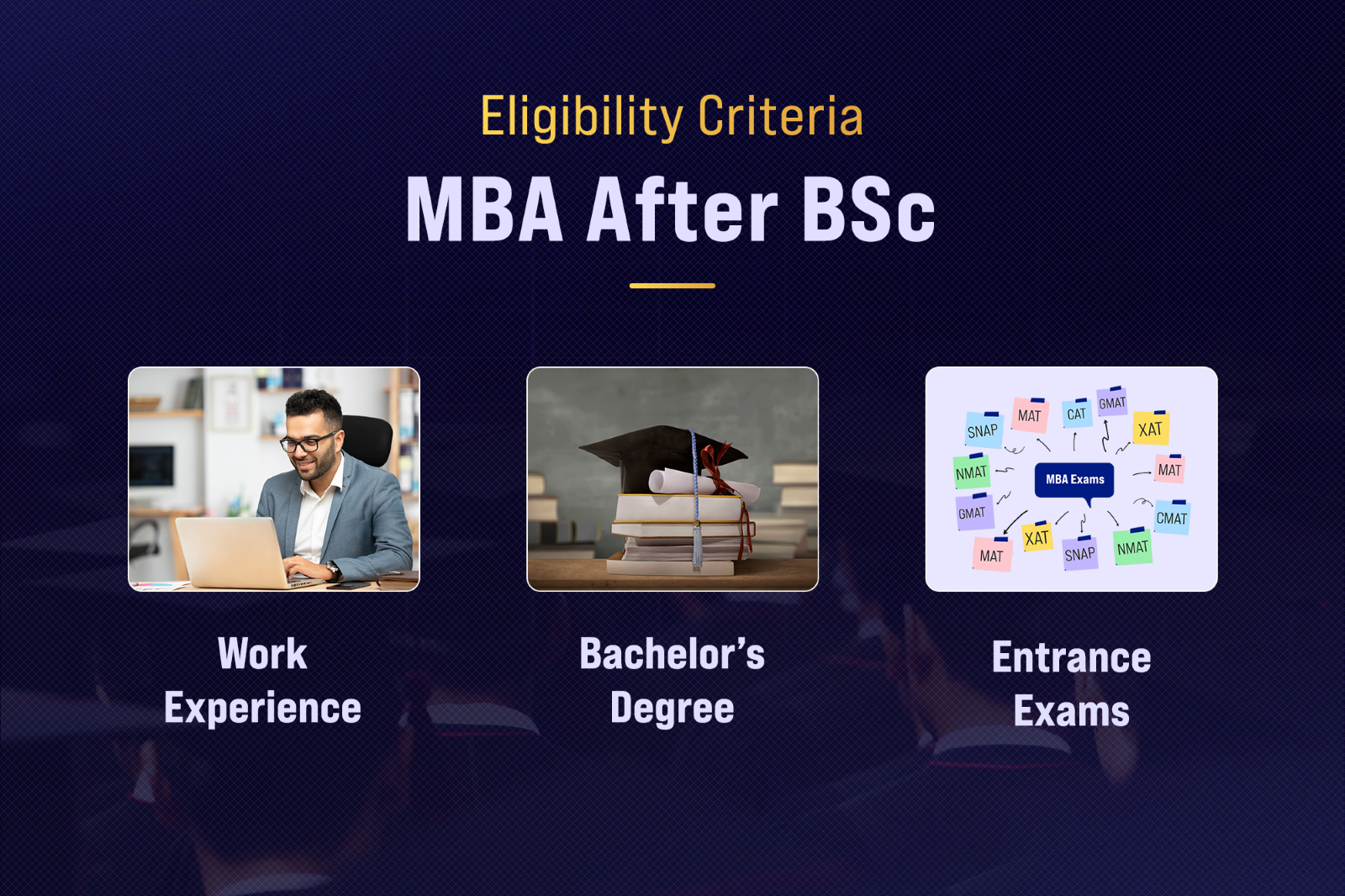Can We Do an MBA After a BSc?

Deciding what to do after a Bachelor of Science (BSc) degree can be challenging. Should you immediately join the professional world, accumulate practical experience, or further your academic credentials? Many BSc graduates contemplate pursuing a Master of Business Administration (MBA) as their next educational milestone. But is this the right choice for you?
Yes, a graduate with a Bachelor of Science (BSc) may do an MBA. The postgraduate level enhances employment opportunities, as the degree provides a solid foundation in business management, leadership, and analytical skills that enable the holder to progress into various managerial and leadership positions across industries.
By undertaking an MBA on top of a BSc, one gains access to managerial and leadership positions across any industry. At Altera Institute, students gain skills and practical experience that help them grow professionally and improve their career prospects. Learn how our courses enable you to have a solid base in management.
An MBA qualification can significantly amplify your career trajectory by serving as a crucial connector between specialized technical expertise and comprehensive business understanding. But before you take the leap, it's essential to understand what to expect, the benefits and drawbacks, and how to choose the right MBA program.
MBA After BSc: What to Expect?
A science degree mostly centers on subject knowledge in disciplines such as physics, chemistry, biology, mathematics or computer science. But this leads to professional development in purely technical careers being slow and constrained to research jobs only.
Within MBA curricula, students are exposed to foundational business knowledge, including financial analysis, strategic marketing, operational frameworks, and organizational leadership. It prepares BSc graduates for leadership and strategic roles across industries, helping them transition from technical experts to decision-makers.

Key Features of a BSc Degree
A Bachelor of Science (BSc) is a three-year degree program that builds a solid foundation in scientific concepts, making it perfect for those passionate about analysis, research, and innovation. Here are some of the key aspects of a BSc degree:
Structured Learning Approach: The BSc curriculum is methodically divided into three stages:
First Year: It is aimed at introducing basic concepts to lay a strong foundation in the selected field.
- Second Year: Programme outlines a blend of theoretical and practical applications.
- Final Year: Entails intensive studies, practical work and specialization electives.
Classroom & Practical Exposure: Students participate in lectures, seminars, and laboratory work to further understand the basic theories of science and how they work in the field.
Objective & Career Orientation: The BSc program is mainly oriented towards developing expertise in the subject matter and equipping students to take up advanced degrees or research-based professions in their area of study.
Although a BSc develops technical skills and problem-solving skills, it does not focus on business expertise or leadership. That is where MBA (Master of Business Administration) is different, and it is more about interpersonal abilities, ethical decision-making, and managerial skills.
For those looking to blend their scientific knowledge with management expertise, an MBA offers flexibility to advance in leadership roles while balancing professional commitments. This dual skill set can be highly valuable in today’s dynamic job market.
Points to Consider Before Opting for an MBA After BSc
Here are a few key considerations to make before opting for an MBA after a BSc:
1. Competition
- Admission Process: Gaining admission to a reputable MBA program is highly competitive. You need to meet strict cut-off scores in entrance exams such as CAT, MAT, XAT, and others. Hence, preparing thoroughly for these exams is crucial.
- Academic Performance: Once admitted, the competition continues within the program. Grades are often based on a ranking system relative to your peers, meaning your performance is directly compared to the class average. This is why consistent effort and dedication are crucial for success.
- Placements: Another competitive factor is getting a good placement. Your grades, extracurricular activities, and club activities all greatly affect your chances of securing a job.
2. Campus Life
- Extensive Learning Environment: MBA programs are designed to upskill students and prepare them for leadership roles. The campus environment is highly intense and learning-oriented, leaving little room for slacking off. Be prepared for a rigorous academic schedule, which also requires a significant commitment of time, effort, and resources from students.
- Networking Opportunities: While the MBA campus environment is demanding, it also provides ample networking opportunities. Engaging with peers, faculty, and industry professionals can provide valuable connections and insight for future endeavours, making it even more worthwhile.
- Work-Life Balance: It can be difficult to maintain a balance between academics, extracurricular activities, and personal life. Time management and task prioritisation are key competencies that can help a person cope with the harsh conditions on campus.
3. Learning Model
- Leadership Development: MBA programs are designed to make leaders. Therefore, the pedagogy is designed to simulate real-life business situations, with an emphasis on the acquisition of applied skills and comprehensive learning.
- Interactive Learning: Anticipate a dynamic approach to learning that comprises case studies, internships, practical projects, debates, interactive sessions, and networking. All this is to enhance your communication, presentation, and critical thinking skills.
- Holistic Development: The learning model focuses on the development of the student as a whole, not only hard skills, but also leadership traits and thinking. This holistic strategy gets you ready to face the realities of the business world.
Understanding these aspects will help you prepare better and make an informed decision about pursuing an MBA and choosing the specialization of your choice.
Benefits of Pursuing an MBA After a BSc
A BSc with an MBA degree provides professionals with more opportunities to be flexible and competitive in the current job market, which is highly dynamic. The following are some of the powerful reasons why an MBA after a BSc would be a game-changer:

1. Provides a Competitive Edge
As industries get more dynamic and competitive, professionals have to work harder to stand out. A BSc followed by an MBA offers a business-related focus, enabling graduates to ascend the corporate hierarchy more quickly. A combination of technical skills from a BSc and business skills from an MBA gives candidates an advantage over their colleagues, making them highly attractive for leadership positions.
2. Broadens Career Opportunities
While BSc graduates are limited to technical or research-based roles, an MBA opens doors to managerial and strategic positions. For instance, a microbiology graduate who completes an MBA in healthcare management can transition from a laboratory-based job to an executive role in hospital administration or pharmaceutical management.
3. Boosts Career Growth and Salary
Professionals may hit a career plateau with a BSc degree alone. This is why pursuing an MBA helps enhance their skills, leadership potential, and business understanding, making them eligible for promotions and higher salaries. It also opens doors to a multitude of industries, such as finance, healthcare, technology, and consulting, where leadership positions offer higher pay scales and job security.
4. Provides Job Flexibility
One of the biggest advantages of an MBA is the flexibility it offers. Many universities and institutions provide full-time, part-time, online, and executive MBA programs, allowing students to choose a format that suits their lifestyle.
- Professionals can pursue an online or part-time MBA to acquire new skills without losing job opportunities.
- Students seeking a complete change of career may seek a full-time MBA, which has networking opportunities and industry exposure.
5. Develops Adaptability
The corporate world evolves rapidly, and professionals need to keep up with changing trends. A BSc degree provides technical knowledge, but an MBA teaches students to adopt continuous learning as a norm, which ensures long-term career growth and resilience in the job market.
Drawbacks of Pursuing an MBA After a BSc
As we know now, pursuing an MBA after a BSc can offer numerous career benefits, but it is important to acknowledge the challenges that come with this academic and professional transition.
1. Tough Admission Process
Admission to the best MBA program is very competitive. Although they provide a direct route to high-growth positions at major companies, only a few per cent of candidates secure these positions.
In addition, BSc graduates often struggle with business or commerce students and may need to work extra hours to fill gaps in their business knowledge. This is further complicated by entrance exams such as the CAT, GMAT or GRE, interviews and group discussions.
2. Placement Hurdles
Although an MBA provides access to high-impact career opportunities, BSc graduates may face a more difficult placement situation than those with prior business education. There are instances when companies might only want candidates with a background in commerce or management, but strong business skills, leadership traits, and a strong portfolio will always overcome these obstacles and enable the candidate to shine in the job market.
3. High Financial Investment
MBA courses, particularly at prestigious schools such as IIMs and ISB, are not only costly in terms of tuition fees but also in accommodation, opportunity costs, and so on. Although scholarships and loans may relieve the strain, candidates need to critically assess the ROI of their MBA programs and the degree's compatibility with their career ambitions.
4. Intense Academic Competition
MBA programs are very competitive, and students are constantly tested on their performance. Academic competitiveness and the pursuit of the best placements may be a stress factor, especially for those not accustomed to this kind of setup. Therefore, the key to success in this environment is flexibility and strength.
5. Shift from Technical to Managerial Roles
Changing from a technical or scientific-oriented background to a business-oriented position may be difficult. As much as an MBA trains one on strategic thinking and leadership skills, there are BSc graduates who may not immediately cope with business jarganisms, finance, and market tactics. Nevertheless, this gap can be successfully bridged with an appropriate approach and dedication.
Eligibility Criteria: MBA After BSc

In order to do an MBA after a BSc, a candidate must have the following eligibility criteria:
- Bachelor’s Degree: Applicants are required to possess an established undergraduate degree, including a BSc (Bachelor of Science), from a well-known university. Most institutions require a minimum of 50% marks in graduation, with possible relaxations for reserved categories.
- Entrance Exams: Admission to top MBA programs requires qualifying scores in entrance exams such as:
- CAT (Common Admission Test) – For admission to IIMs and other leading Indian B-schools.
- GMAT (Graduate Management Admission Test) – Accepted by top business schools worldwide.
- XAT, MAT, CMAT, NMAT, and SNAP – Other national and university-level entrance exams.
- Work Experience (Optional): While not mandatory for most MBA programs, some executive MBA courses prefer candidates with 2–5 years of work experience.
With the right preparation, BSc graduates can successfully transition into an MBA program and open doors to diverse career opportunities.
How to Select the Right MBA Program?
Choosing the right MBA program is more complex than it seems, given the many options available. Hence, it’s important to make a well-informed choice based on your goals, strengths, and circumstances.
- Define Your Career Goals: Begin by identifying and writing down your long-term career goals. What do you see yourself doing within one to five to ten years? Do you want to become a manager, change your profession, or become an entrepreneur? These should align with your MBA program.
- Explore MBA Specializations: MBA programs offer diverse specializations, including finance, marketing, data analytics, healthcare management, and entrepreneurship. Choose a specialization that complements your BSc background or your strong attributes that can help you in your future career plans.
- Consider Program Format: MBA programs come in different formats:
- Full-Time MBA – Best for those willing to dedicate two years to immersive learning.
- Part-Time/Online MBA – Suitable for working professionals who want flexibility.
- Executive MBA (EMBA) – Specifically crafted for experienced professionals targeting executive leadership positions.
- Research Business Schools & Accreditation: Find the best B-schools accredited by well-known agencies, such as the National Institutional Ranking Framework (NIRF) and the All-India Council for Technical Education (AICTE). Check their records of placement, faculty, and industry contacts, as well.
- Assess Costs & Financial Aid Options: MBA programs can be expensive, so evaluate the tuition fees, scholarships, and loan options before deciding. Some universities offer financial aid to support deserving candidates.
- Check Admission Requirements: Most MBA programs require a competitive entrance exam score (such as CAT, GMAT, XAT, or GRE) along with a strong academic record. Some also require work experience, so check your eligibility criteria accordingly.
MBA After BSc: Is It Worth It?
An MBA may be worth pursuing after completing a BSc, if planned well. Although the best MBA programs may cost 10 to 35 lakhs, education loans and scholarships may reduce the burden.
The payoff (ROI) is high, and the salaries of graduates range between ₹10-25 LPA, depending on the institute and specialization. An MBA is also a good long-term investment, as it leads to leadership positions, professional development, and networking.
With a critical evaluation of the expenditure, scholarships and the prospective earning capacity, an MBA following a BSc can certainly be worth the price.
FAQs
Q1. Can I go to IIM after BSc?
Ans: Yes, you can apply for IIMs after completing a BSc. Admission requires clearing the CAT exam, followed by group discussions, interviews, and academic performance evaluations. A strong CAT score enhances your chances of securing admission to premier institutions like the IIMs.
Q2. Is it possible to pursue an MBA after a BSc degree in Nursing?
Ans: Yes, BSc Nursing graduates can pursue an MBA with a specific focus on healthcare management, hospital administration, or general management. The combination has the potential to unlock leadership opportunities within the healthcare and hospital sectors, providing them with professional growth and increased remuneration.
Summing Up
An MBA can be a strategic professional development option for people who need to bridge the gap between technical knowledge and business management skills after completing a BSc. Nonetheless, this transition has its challenges, such as a competitive admissions process, financial investment, and the transition from technical to managerial roles.
To get the best out of it, one needs to select the right MBA specialisation, weigh career objectives and ROI, and then decide.
When well-planned, an MBA following a BSc can be a game-changer, leading to higher salaries, leadership positions, and greater career flexibility across many sectors. It is a long-term investment which, in the right approach, can lead to a dynamic and rewarding professional life.





